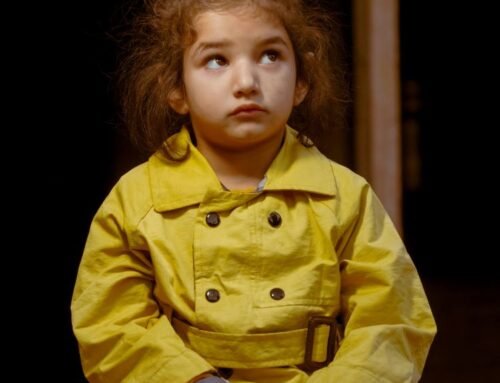 They say that the past makes you into the person you are today. Your positive and negative experiences will both have an impact on who you turn into as an adult.
They say that the past makes you into the person you are today. Your positive and negative experiences will both have an impact on who you turn into as an adult.
If your parents were both teachers, you might be more likely to become a teacher yourself. If your baked cookies or muffins with your grandma growing up, you may be more inclined to bake as a hobby or passion as an adult. Or maybe you were bitten by a dog when you were younger, and to this day, you’re slightly afraid of dogs.
Positive and negative experiences can have a huge impact on the person you become. Your primary caregiver and your attachment to that primary caregiver can play a huge role.
Let’s learn more about attachment trauma and what causes it.
What Is Attachment Trauma?
Attachment trauma is a type of trauma that can occur in children when growing up. An attachment is formed between the primary caregiver and a child. A child will learn the love and expectations set out by their primary caregiver. The trauma that can occur describes the disruption in the set standard of expectations between a child and their primary caregiver.
Types of Attachment Patterns
There are four different types of attachment patterns that can occur. One of these attachment styles is identified as a secure attachment style while the other three are known as insecure attachment styles.
The four attachment styles are the following:
- Secure attachment style
- Anxious attachment style
- Avoidant attachment style
- Disorganized attachment style
 Attachment trauma occurs when a child experiences any of the three insecure attachment styles: Anxious attachment, avoidant attachment, and disorganized attachment. Children who experience insecure attachment styles in their youth are more likely to develop an insecure attachment style in their adulthood.
Attachment trauma occurs when a child experiences any of the three insecure attachment styles: Anxious attachment, avoidant attachment, and disorganized attachment. Children who experience insecure attachment styles in their youth are more likely to develop an insecure attachment style in their adulthood.
The Signs and Symptoms
Many adults who have attachment trauma will show signs of it within their own relationships. Relationships are a common area affected within the lives of individuals who experience a form of attachment trauma. Depending on the type of attachment trauma that occurred, individuals could become avoidant, overly attached, or even fearful of the relationships in their adult lives.
These are some of the other most common signs and symptoms of attachment trauma:
- Anxiety
- Borderline personality disorder
- Depression
- Dissociating
- Enmeshment
- Guilt
- Hyperarousal
- Overly stressed
- Post-traumatic stress disorder (PTSD)
- Shame
The Cause
Attachment trauma is caused whenever there is a disruption in the relationship between a child and their primary caregiver. These are some of the most common causes of attachment trauma:
- Abandonment
- Death of a loved one
- Divorce
- Domestic violence
- Emotional abuse
- History of mental illness within the family
- Emotional or physical neglect
- Physical abuse
- Sexual trauma
How to Move Forward
 Just because you’re facing some difficulties in your past and present relationships don’t mean that things can’t improve in the future. There is always room for improvement if you put in the time and effort. Your attachment trauma didn’t happen overnight, which means that change won’t happen overnight either.
Just because you’re facing some difficulties in your past and present relationships don’t mean that things can’t improve in the future. There is always room for improvement if you put in the time and effort. Your attachment trauma didn’t happen overnight, which means that change won’t happen overnight either.
Luckily, there are things that you can do on your own end to move forward and build healthier and more positive relationships. Take the time to learn more about attachment styles and any signs or symptoms you may be experiencing. Once you learn more about it, try seeking a partner who shows signs of a secure attachment style. You can also work on your own end to improve communication with yourself and others.
If you need additional support, try reaching out to a therapist. They’ll be able to work with you to learn more about your past in order to move forward. Learn more about trauma counseling here, then reach out to me today to set up a consultation.





